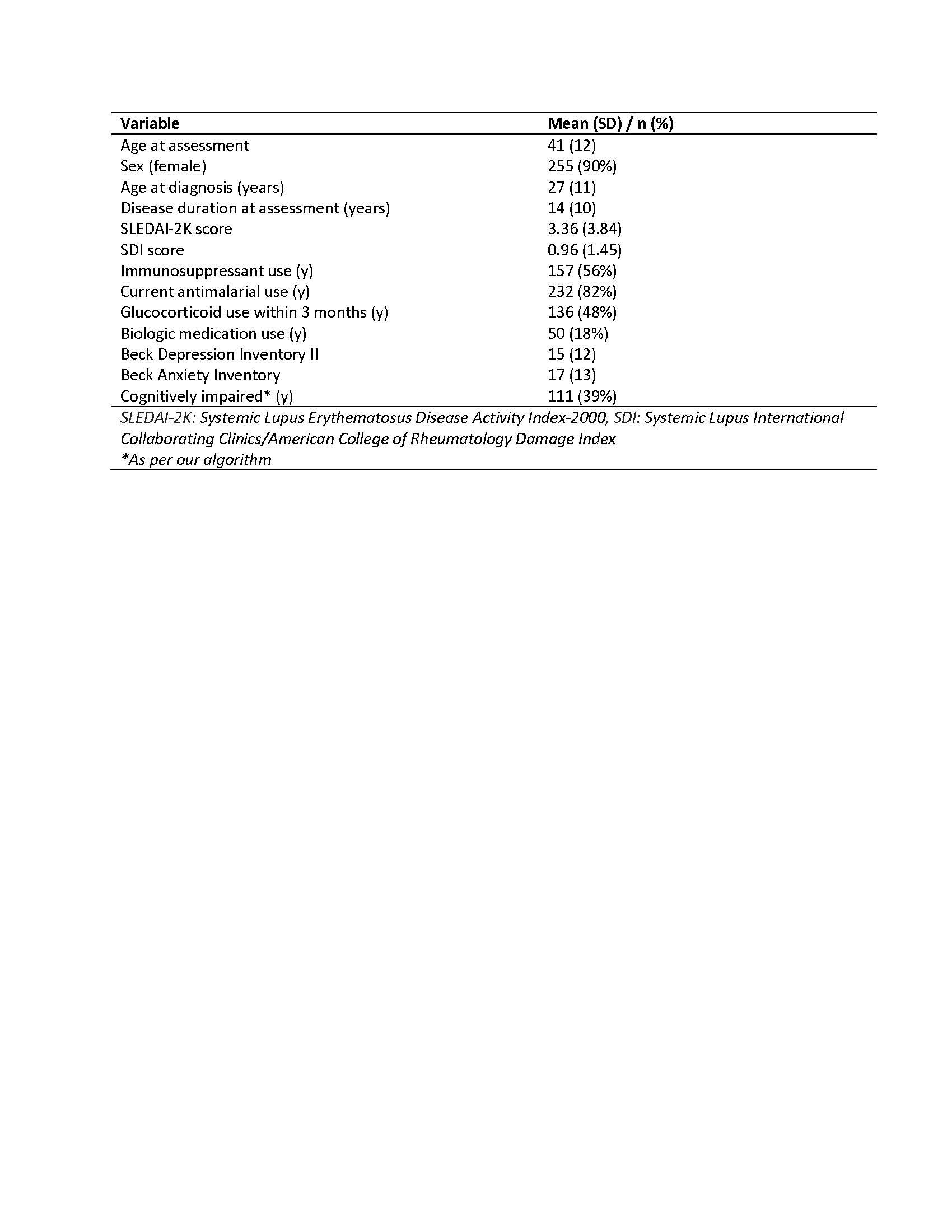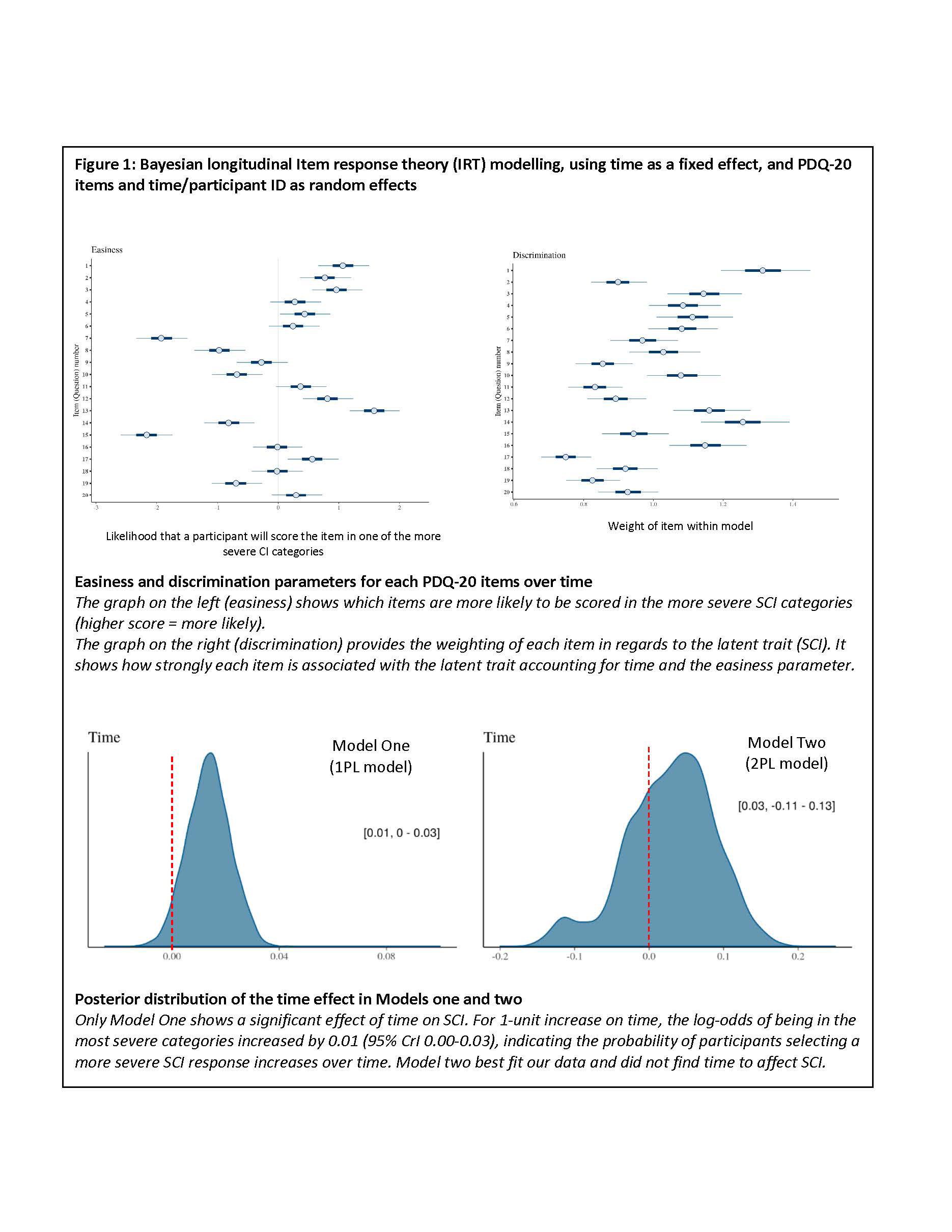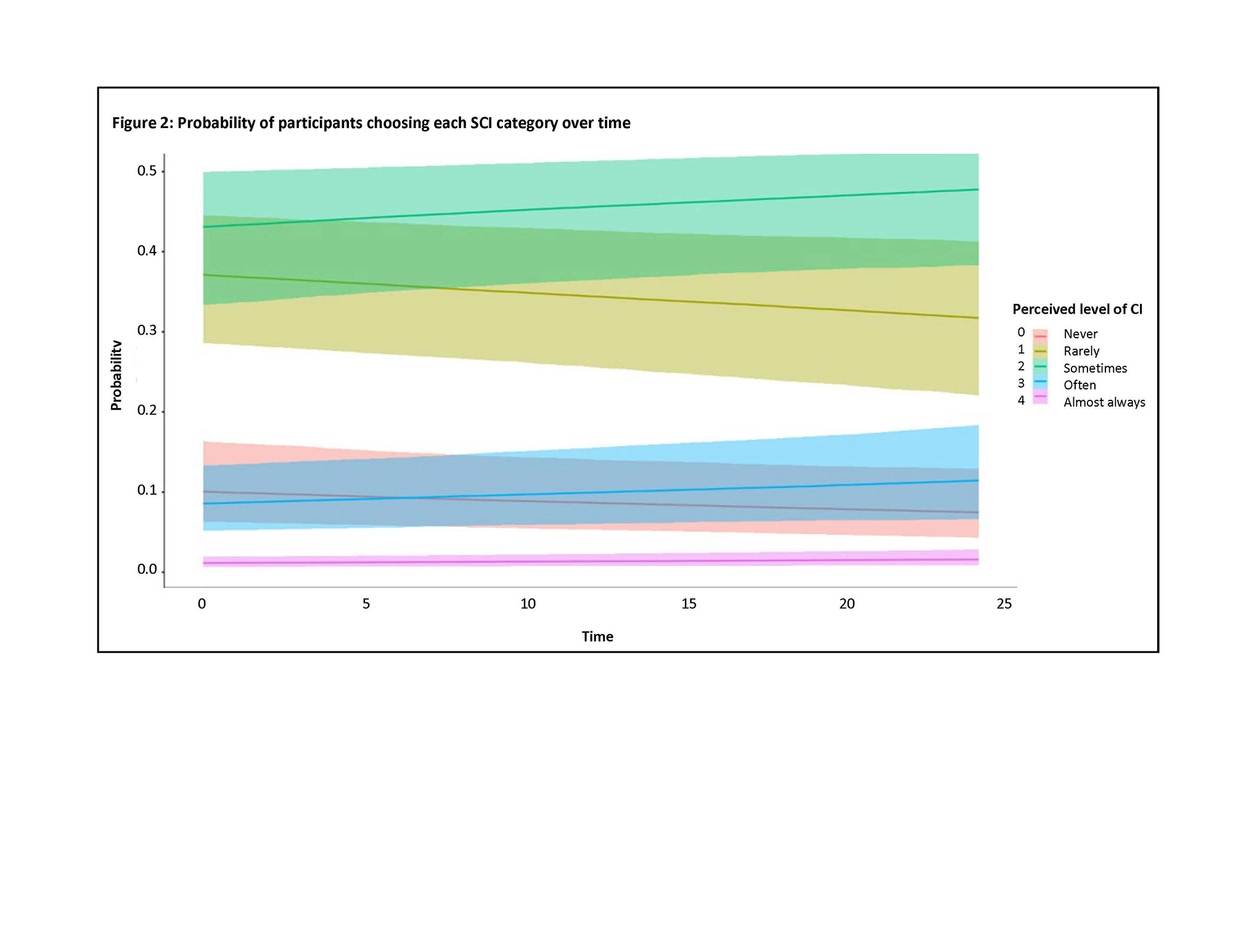Session Information
Date: Sunday, November 13, 2022
Title: SLE – Diagnosis, Manifestations, and Outcomes Poster II: Manifestations
Session Type: Poster Session C
Session Time: 1:00PM-3:00PM
Background/Purpose: Subjective cognitive impairment (SCI) is a significant problem in SLE and there are a lack of studies assessing change over time in SCI. The Perceived Deficits Questionnaire (PDQ-20) is designed to measure SCI. This tool consists of 20 items assessing different perceived cognitive difficulties. Participants respond using a 5-point Likert scale (scale categories from 0-never to 4-almost always experiencing the difficulty). Using the PDQ-20, the aim of this study was to assess SCI changes over time in an SLE cohort. In addition, the usefulness of each PDQ-20 item as an SCI measure was explored.
Methods: Demographic, clinical, and psychiatric data, patient reported outcomes, including the PDQ-20 and the ACR neuropsychological battery were collected at multiple visits (0, 6, 12 and 24 months) for participants meeting the 2019 EULAR/ACR classification criteria for SLE. Bayesian longitudinal item response theory (IRT) modelling – using time as a fixed effect, and PDQ-20 items and time/participant as random effects – were undertaken to assess SCI changes over time. Model One was fitted with an easiness parameter that was estimated for each PDQ-20 item (higher values represent a higher probability of participants selecting a more severe SCI category). Model Two repeated model one, but also included a discrimination parameter (DP) per item. The DP represented the weight of each PDQ-20 item within the latent trait (SCI). Finally, leave-one-out cross-validation (loo-cv) was used to determine the best statistical model for our data set.
Results: Results from 283 participants for 612 visits were used. Participants were representative of a typical SLE patient group (Table 1). The easiness parameters for each PDQ-20 item showed items 1, 3, 7, 13, and 15 had higher positive values, meaning the chances of selecting one of the more severe SCI categories was increased for these items. Model One showed that the log-odds of SCI increases over time (0.01 95% CrI 0.00-0.03). Model Two indicated that items 1, 14, 17, and 19 held the most discrimination, meaning that these items can distinguish between patients with very similar latent abilities, but the effect of time was no longer significant (0.03 95% CrI -0.11-0.13) (Figure 1). Loo-cv showed model two to be the best fit for our data. Finally, plotting the probability of selecting each PDQ-20 SCI category over time found that the probability of selecting the more severe categories (2-4) increased over time, whereas the less severe (0-1) reduced over time (Figure 2).
Conclusion: This analysis indicated that SCI may increase over time. It also highlighted which items on the PDQ-20 are more likely to be scored with a high SCI and which are more discriminate with regards to the latent trait in our SLE cohort. This complex analysis is the first to have used IRT for the assessment of longitudinal Likert data and did so by fitting the data to one trajectory (worsening SCI over time). Our future analyses will use this new technique to investigate multiple trajectories of SCI over time within our SLE cohort.
To cite this abstract in AMA style:
Barraclough M, Diaz-Martinez J, Knight A, Bingham K, Su J, Kakvan M, Munoz C, Tartaglia M, Ruttan L, Wither J, Choi M, Anderson N, Bonilla D, Appenzeller S, Parker B, Katz P, Beaton D, Green R, Bruce I, Touma Z. Evolution of Subjective Cognitive Impairment Overtime in SLE Patients: Bayesian Longitudinal Item Response Theory Modelling [abstract]. Arthritis Rheumatol. 2022; 74 (suppl 9). https://acrabstracts.org/abstract/evolution-of-subjective-cognitive-impairment-overtime-in-sle-patients-bayesian-longitudinal-item-response-theory-modelling/. Accessed .« Back to ACR Convergence 2022
ACR Meeting Abstracts - https://acrabstracts.org/abstract/evolution-of-subjective-cognitive-impairment-overtime-in-sle-patients-bayesian-longitudinal-item-response-theory-modelling/



